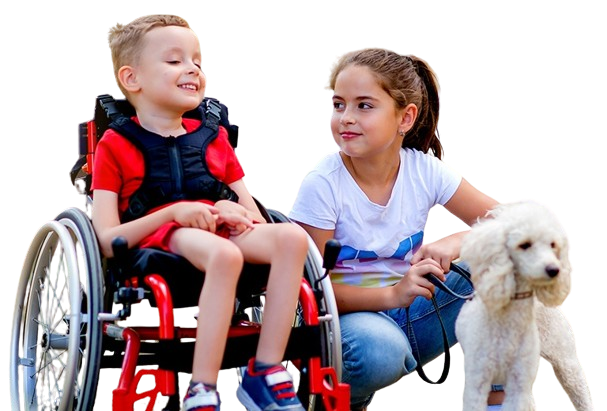Neuromuscular Disease Expert in Perumbakkam
Your Trusted Partner in Neuromuscular Diseases
Neuromuscular diseases affect the nerves that control voluntary muscles, leading to a range of symptoms from muscle weakness to paralysis. Our mission is to offer unparalleled support and expertise to help you manage and overcome the challenges posed by neuromuscular conditions.

Understanding Neuromuscular Diseases
What are Neuromuscular Diseases?
Neuromuscular diseases (NMDs) are a group of conditions that affect the nerves that control voluntary muscles and the communication between these nerves and the muscles themselves. These diseases can impair muscle function, leading to symptoms such as weakness, numbness, cramps, twitching, and in severe cases, paralysis.
There are many types of neuromuscular diseases, each with its own specific characteristics and causes. Some common examples include:
Muscular Dystrophy: This is a group of genetic diseases characterized by progressive muscle weakness and degeneration.
Amyotrophic Lateral Sclerosis (ALS): Also known as Lou Gehrig’s disease, ALS affects the nerve cells responsible for controlling voluntary muscle movement, leading to muscle weakness and eventual paralysis.
Myasthenia Gravis: This autoimmune disorder causes weakness and rapid fatigue of muscles under voluntary control.
Peripheral Neuropathy: Damage to the peripheral nerves can lead to weakness, numbness, and pain, often in the hands and feet.
Charcot-Marie-Tooth Disease: This is a hereditary condition that affects the peripheral nerves, leading to muscle weakness and atrophy, particularly in the feet and lower legs.
Causes of Neuromuscular Diseases
- Genetic mutations: Inherited genetic mutations can lead to various neuromuscular disorders, such as muscular dystrophy and Charcot-Marie-Tooth disease.
- Autoimmune conditions: Disorders like myasthenia gravis occur when the body’s immune system mistakenly attacks neuromuscular junctions, disrupting communication between nerves and muscles.
- Infections: Certain infections, such as poliovirus and Lyme disease, can cause damage to nerves and muscles, leading to neuromuscular symptoms.
- Trauma: Injuries to the nerves or muscles, such as those sustained in accidents or during surgery, can result in neuromuscular complications.
- Toxins and exposure: Exposure to certain toxins, chemicals, or drugs can damage nerves or muscles, leading to neuromuscular problems.
- Metabolic disorders: Conditions like mitochondrial diseases can affect the energy-producing cells in muscles, leading to weakness and other neuromuscular symptoms.
- Degenerative processes: Aging and degenerative processes can lead to conditions like amyotrophic lateral sclerosis (ALS), where nerve cells gradually deteriorate, causing muscle weakness and paralysis.
Symptoms of Neuromuscular Diseases
- Muscle weakness
- Fatigue
- Numbness or tingling
- Muscle cramps or spasms
- Twitching or fasciculations
- Difficulty with movement or coordination
- Muscle atrophy (wasting)
- Difficulty swallowing or speaking
- Respiratory difficulties
- Pain or discomfort

Treatments
- Medications: Various medications may be prescribed to manage symptoms such as muscle weakness, pain, spasticity, and fatigue. These can include corticosteroids, immunosuppressants, pain relievers, and medications to improve muscle function or nerve signaling.
- Physical therapy: Physical therapy can help improve muscle strength, flexibility, and coordination, as well as alleviate symptoms such as muscle stiffness and pain. It may also include specialized exercises and techniques to improve mobility and function.
- Assistive devices: Devices such as braces, orthotics, walkers, canes, wheelchairs, and mobility scooters can help individuals with neuromuscular diseases maintain independence and improve quality of life by providing support, stability, and assistance with movement.
- Respiratory support: For individuals with neuromuscular diseases affecting respiratory muscles, respiratory therapies such as breathing exercises, cough assistance techniques, non-invasive ventilation (e.g., BiPAP), or mechanical ventilation may be necessary to support breathing and prevent respiratory complications.
- Speech therapy: Speech therapy can help individuals with neuromuscular diseases improve their ability to speak, swallow, and communicate effectively, particularly if they experience difficulties due to weakness or coordination problems in the muscles involved in speech and swallowing.
- Surgical interventions: In some cases, surgical procedures may be recommended to address specific issues related to neuromuscular diseases, such as tendon release surgeries to improve joint mobility, corrective surgeries for scoliosis, or procedures to implant devices such as deep brain stimulators for conditions like dystonia or Parkinson’s disease.
- Experimental therapies: Researchers are continually exploring new treatments for neuromuscular diseases, including gene therapy, stem cell therapy, and experimental medications aimed at targeting the underlying causes of these conditions. Participation in clinical trials may be an option for eligible individuals seeking access to cutting-edge treatments.
Frequently Asked Questions on Neuromuscular Diseases
Some neuromuscular diseases have a genetic component and can be inherited from one or both parents. Examples include muscular dystrophy, Charcot-Marie-Tooth disease, and some forms of ALS.
Diagnosis typically involves a combination of medical history review, physical examination, neurological assessments, imaging tests (such as MRI or CT scans), nerve conduction studies, electromyography (EMG), and genetic testing.
While there is currently no cure for most neuromuscular diseases, various treatments and therapies can help manage symptoms, slow disease progression, and improve quality of life.
In many cases, neuromuscular diseases cannot be prevented, especially those with a genetic or autoimmune component. However, avoiding exposure to toxins, practicing good hygiene to prevent infections, and maintaining a healthy lifestyle may help reduce the risk of certain types of neuromuscular diseases.
